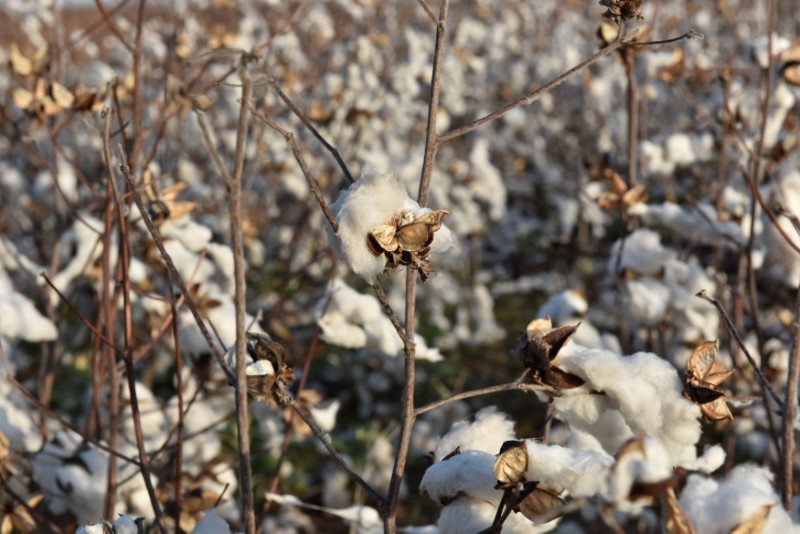(Bloomberg) -- Cotton growers are facing a growing supply glut as shoppers are slow to return to stores, threatening to halt a recovery in prices from a decade low.
Companies such Hennes & Mauritz AB are struggling to regain pre-virus sales levels and the owner of Men’s Wearhouse and Jos. A. Bank is mulling bankruptcy protection. China’s retail sales in May fell more than analysts forecast, illustrating the challenge of getting shoppers back to stores as economies reopen. The U.S. Department of Agriculture last week cut its 2020-2021 world consumption forecast by 1.8%, and raised its estimate for August 2021 global reserves to the second-highest since at least 1960.
“Ultimately, the entire cotton complex will head south under the weight of all these unsold stocks,” Peter Egli, a Chicago-based director of Plexus (NASDAQ:PLXS) Cotton Ltd., said in a report. “All this excess cotton is in a game of musical chairs and the music will stop soon.”
Cotton futures in New York rose as much as 26% from early April, driven largely by Chinese buying as the world’s biggest importer complies with phase one of its trade deal with Washington. That short-term boost is likely to fade, according to analysts. U.S. prices may fare better than elsewhere in the short term due to local issues.
“The fact that the U.S. is well committed this season and that new crop has some issues with a potential drought in West Texas may keep U.S values strong relative to other origins,” Egli wrote.
For Egli, the most bearish development for prices is the increase in global stockpiles, especially outside China, now projected by the USDA at 63.31 million bales for this season, which ends next month, swelling to 69.05 million bales a year later, some 25 million more than in August 2019.
While the economy in China, the top user of cotton, continued to inch out of the coronavirus slump in May, a reliance on industry amid sluggish consumer demand underlines the fragility of the recovery.
Retail Struggles
H&M’s sales in the first part of June were down 30% from a year earlier. Victoria’s Secret parent has said it will close 251 stores, while J.C. Penney Co. is set to close stores. Ascena Retail Group (NASDAQ:ASNA), the owner of Ann Taylor and Lane Bryant apparel chains, said in late May that foot traffic is lower than normal at stores it has reopened.
While commodity “demand will inevitably bounce back as lock-downs are lifted, the return to pre-virus consumption patterns will take longer as consumers remain cautious,” Caroline Bain, chief commodities economist for Capital Economics in London, said in a report.
Cotton is also under pressure from increased competition from synthetic fibers such as polyester, made cheaper by the plunge in crude oil earlier this year.
“The competition from polyester is not helping,” said Jon Devine, economist for Cary, North-Carolina-based researcher Cotton Inc. “But the primary concern on the demand front is simply the macroeconomic situation. Overall activity is slow, consumers are worried, and retailers are in financial trouble. It is not an environment that is healthy for order placement for textiles and, therefore, for fiber across the board.”
©2020 Bloomberg L.P.
